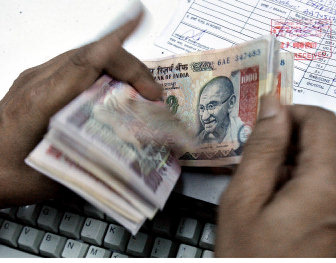Review of Guidelines on Licensing of New Banks in Private Sector
In 1993, Reserve Bank of India came up with its new guidelines regarding entry of the private sector in Banking. On the basis of these guidelines, RBI issued licenses to Nine banks. Later, two more banks were given license. One was Yes Bank and another was Kotak Mahindra Bank, which was allowed to transform itself into a bank from a finance company. All these were called New Private Banks. Currently, there are seven new private sector banks operating in India viz. Axis Bank, Development Credit Bank (DCB Bank Ltd), HDFC Bank, ICICI Bank, IndusInd Bank, Kotak Mahindra Bank and Yes Bank.
In the Union Budget 2011, the need for more banking licenses in private sector was iterated. On the basis of budget announcements, RBI issued draft guidelines in August 2011. In February 2013, RBI issued final guidelines. Salient features of these guidelines were as follows:
- Entities or groups in the private sector, Entities in public sector and Non-Banking Financial Companies (NBFCs) can set up a bank, which shall be a wholly-owned Non-Operative Financial Holding Company (NOFHC). The company so formed will be registered as a NBFC.
- Entities or groups should have a past record of sound credentials and integrity, be financially sound with a successful track record of 10 years. For this purpose, RBI may seek feedback from other regulators and enforcement and investigative agencies. This was called “fit and proper”
- Minimum paid up equity capital of Rs 500 crore.
- At the start of banking operations, NOFHC should hold a minimum of 40 per cent of the equity capital of the bank with a lock-in period of five years.
- Later, it has to be brought down to 15 percent within 12 year from that onwards.
- Separate set of RBI norms
- Condition to launch 25% of branches in unbanked rural areas with population upto 9,999.
- New bank should also achieve priority sector lending target of 40%.
- FDI is capped at 49% for first five year, later as per extant norms.
In July 2013, RBI invited applications for new banking licenses but only 25 aspirants applied. These applications were scrutinized by the Bimal Jalan panel.
In April 2014, RBI issued in principle license to only 2 applicants viz. Infrastructure Development Finance Company (IDFC) and microfinance lender Bandhan Financial Services Ltd. This was mainly because of the debate over the question that whether corporate houses and entities with exposure to real estate should be given licenses (or not).
The in-principle approval by RBI is valid for ONLY 18 months. During this 18 month-period IDFC and Bandhan Financial Services Ltd will have to meet all RBI rules and guidelines in order to secure a permanent licence to start banking activities.


